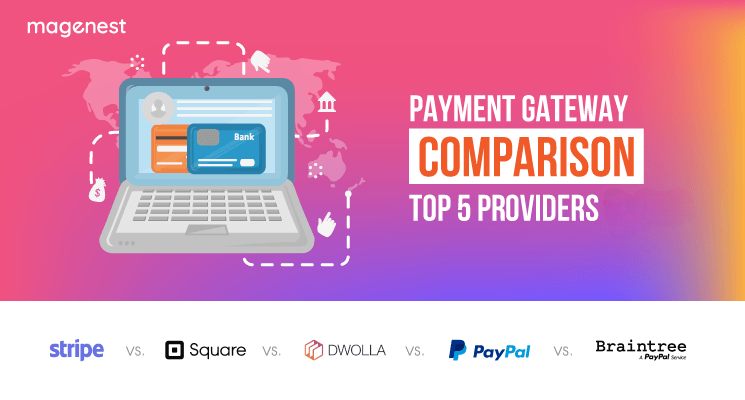What is Payroll Deduction?
Some Examples of Payroll Deductions
Employers' Responsibilities for Payroll Deductions?
Post-tax and Pre-tax Deduction
7 Popular Types of Payroll Deductions
How do Payroll Deductions Work?
How to Calculate Payroll Deductions?
What is Payroll Deduction for Insurance?
Incorrect Payroll Deduction
FAQs about Payroll Deduction
Your employees may struggle to cover all the bills and want to find a painless way to set aside their money for future use. In fact, there are several ways for all working people to save money. Whether you are an employer or employee, this article will give you some real basics to answer the question: “What is payroll deduction?”. Let’s dive into it.
What is Payroll Deduction?
Basically, payroll deduction can be simply understood as a reduction in the earnings of employees. This reduction comes from the purposes of collecting their contributions to pay all further benefits as well as taxes required by the government. Therefore, employers will take a certain amount of money from their employee’s wages.

In short, you can take it as a reduced amount of money to pay taxes, garnishment, and benefits. Besides, there are some voluntary payroll deductions, which will be taken out when the employees are ready to provide any written authorization. However, wage garnishment and taxes are regarded as compulsory payroll. Let's continue to gain more insight into these common payroll deductions.
Some Examples of Payroll Deductions
You can divide the payroll deduction into 4 different categories, including pre-tax, post-tax, voluntary, and mandatory. Let's take health insurance as an example. In fact, it belongs to the voluntary category and it is often offered on a pre-tax basis. Some other specific examples of those types of payroll deduction that you can frequently see, including:

- Pre-tax deductions: Retirement plans (mostly for federal and state income taxes), group term life insurance, some medical benefits, etc.
- Post-tax deductions: Roth IRA retirement plan, charity donation, garnishments
- Mandatory deductions: FICA taxes, wage garnishments, and federal and state income tax.
- Voluntary deductions: Life insurance, any expenses related to job, and retirement.
Mandatory payroll deductions
If you already answer the question “What is payroll deduction?”, in the next step, you should learn more about the two main categories of payroll deduction for a better understanding of them, including mandatory and voluntary categories.
Basically, if you are an employer, or even managing an online store, you surely should know that the deductions are often withheld before issuing the final paycheck to employees.
For Federal income tax
This tax is often applied to the employees’ salaries. Some types of money and rewards, such as cash gifts, tips, bonuses, etc. are deducted from the wages as well.
For State and Local income tax
This tax is different depending on the state that the employee is working for. The headquarters of employers will not be counted in this situation.

Medicare and Social Security
You also have to pay some money for these benefits, including for medical treatments and society. These contributions will be counted and assessed to your income for a certain percentage.
Voluntary payroll deduction
As its name suggests, this payroll deduction is opposite the previous one. As an employer, for both online and offline businesses, you are not required to ask your employees to pay for it. In fact, many people, on the contrary, find it helpful for both employers and employees to prevent some risks in the future. Below are some payroll deductions, including health, life, disability insurance, union dues, retirement, etc.
Employers' Responsibilities for Payroll Deductions?
As mentioned above, there are two main categories of payroll deduction that are widely used, mandatory and voluntary. To take these 2 payroll deductions, first and foremost, the employers should pay more attention to the salary of employees and convert it into gross pay. Then you will have to subtract them all with the total payment amount to finalize the net pay of employees.
Employers should have good knowledge about the law in order to calculate the most exact number for the employees. Of course, there will be differences between each place, so you, as an employer, should be flexible and recognize the law and apply it correctly.

You also should explain the reason why the net pay is lower than the actual pay before. The obvious information will make the employee better understand their work and continue to focus on their main responsibility.
Post-tax and Pre-tax Deduction
Basically, pre-tax payroll deductions are the amount of money taken from the gross pay when the amount of money has not been withheld yet. Otherwise, the post-tax payroll deductions will be applicable to the employees’ net pay. Some common post-tax deductions, such as contributions for Roth IRA accounts, job-related costs (travel), union dues, etc. One key thing that you should keep in mind is that employees have the right to refuse to join all the post-tax payroll deductions, however, wage garnishment is an exception in this case.
7 Popular Types of Payroll Deductions
To gain a better understanding of the topic “What is payroll deduction”, you should get to know what to deduct from the paycheck. No doubt that paying plays an important role in small business. If you are a business, you should make sure to have on-time payment and the correct number of money when transferring. The 7 types of payroll deductions below are necessary for you to calculate accurately your employees’ wages.

Federal income taxes
This tax is mainly used for the government’s operating expenses. The withholding rate will be different based on each person’s income tax.
Medicare and Social Security
These contributions are mainly for future use. You have to pay for your health care in case you face some risk and suffer from some diseases in the future. As a requirement from the Federal Insurance Contribution Act, there must be some withholding from the employees’ paycheck made by the employers.

State income taxes and local income taxes
Depending on different states, you can see any tax requirement. Some will be equivalent to federal income taxes, some will not collect any income tax at all.
These taxes are often collected by some municipalities or jurisdictions locally. Each location will require a different amount of tax based on the place that you are living at.
Wage garnishments
These payroll deductions are required by the court in order to pay for the child support, some legal obligations, e.g. debt as a clear example.
Insurance premiums
This is considered a benefit for your employee, so they obviously have to be responsible for this portion of paying. As an employer, you can use payroll deductions for their shares of life insurance.
Retirement contribution
This will depend on the company culture and decision, some companies will offer some retirement benefits, which means employees will have options to choose whether they will join or not. In case there is anyone joining, a portion of their wages will be withheld to save for their future use.
Job-related expenses
This will depend on each certain job. This money is often used for uniforms, technological gadgets, e.g. work phones, computers, tablets, etc.
How do Payroll Deductions Work?
Depending on the applicable tax law and other information that payroll deductions will be carried out differently. The calculations are often implemented both by hand and by technology. In fact, you can automate the process with a payroll service provider. This method is more highly recommended because fewer errors are made and the payments will be filed on time as well.

There are several factors to decide the amount of money that you withhold for your employees, including local and state certificates in terms of withholding, selections on benefits, your place of business, etc.
How to Calculate Payroll Deductions?
To calculate the payroll deductions, there are some payroll software programs to save your time. In some cases, you can do all the work on your own as well. Before taking any steps, the following 4 things that you should make sure to prepare for your employees, including IRS form W-4, federal income tax rate, benefit-related payment rate, hourly pay rate. Then, follow the 7 steps as mentioned below. Let’s take a look.

Step 1: Gross pay determination
You can base on the income of your employees to determine the gross. Keep in mind that you also should mention the time cost, especially the overtime hours in case it is applicable.
Step 2: Pre-tax deduction calculation
After you have already determined your gross pay, pre-tax deduction calculation will be the next step. Some benefit-related payments for a certain period should be subtracted from the gross pay before you calculate the mandatory deductions.
Step 3: Federal income taxes calculation
This calculation is deducted by using the information from the federal income tax.
Step 4: FICA taxes calculation
Your employee’s FICA tax obligations can be calculated as well, for example, the payroll deductions will be $182 for Social Security when you multiply your employees’ salary ($30000) by the rate (6.2%).
Step 5: State and local taxes calculation
For this step, you can calculate based on the state and local rates.
Step 6: Wage garnishment calculation
The sixth step requires a court-ordered rate to calculate the employees’ wage garnishments.
Step 7: Final paycheck after subtracting all the deductions
This is the final step, you can subtract them all from the gross pay of your employees. After that, do not forget to continue to subtract the voluntary deductions as well. Some people often suffer from the mistake of forgetting these deductions.
“What is payroll deduction?” Now, you already understand it and clearly know some basic steps to calculating the payroll deduction for your employees.
What is Payroll Deduction for Insurance?
In fact, many people, especially Americans, purchase their own health insurance from their employers via payroll deductions. However, the reality is that this amount of payment is not directly paid from them to their health insurance, but it is reimbursed by their employer.
Incorrect Payroll Deduction
What is payroll deduction? As the definition is clear, however, there are still some deductions that go wrong. There are some assumptions and reasons to explain those incorrect payroll deductions. It is probably because there is too much or not enough money which is withheld. Besides, one possible cause is that the money is withheld for incorrect purposes, etc.
Payroll tax, is it a business expense?
The answer is employers can deduct their payroll taxes, for a certain amount, on the other hand, employees cannot.
FAQs about Payroll Deduction
In general, “what is payroll deduction” is a necessary information base for any merchants, but it is not easy to learn. There are some mistakes that are so costly that make any merchant be more careful about it. Below are some common questions that you may have when starting to use and make the payroll deduction.

Some examples of incorrect payroll deductions
You often see the incorrect payroll deduction from the process of charging employees in their benefits, such as unemployment tax of federal and state, compensation insurance for workers, tools to perform at work, personal protective equipment, etc.
What is the long-term disability deduction on a paycheck?
Normally, you often see the LTD, which stands for the long-term disability deduction. This will cover a percentage of wages in case your employees are sick or badly injured in a period of time. Employees only need to pay a small amount of money for premiums, but they are charged the federal income tax from the federal government.
Conclusion
Obviously, “what is payroll deduction?” is a common question for many merchants nowadays. Whether you are an employer of an online store or even an employee, this information is basically what you should not miss. Now, after having an overview about payroll deduction, you already know the definition and 7 types of payroll deduction for your own business, as well as many other cases which are related to them. If you plan on the next stage of your business, feel free to visit our store for more information about Magento 2 extensions. Magenest provides various modern extensions for payment and management roles.

















